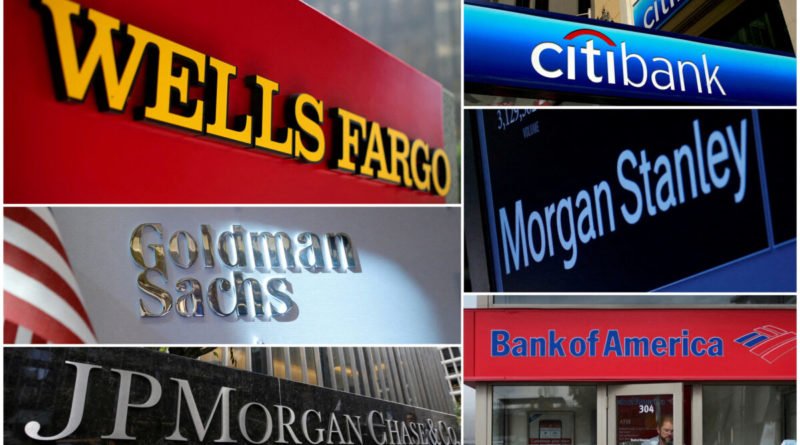New Bill Seeks to Curtail Banks’ Role as Agents of Federal Surveillance

Republican legislators took steps this week to revoke the power the government has granted itself to access Americans’ personal bank accounts without a search warrant.
Through existing laws such as the Bank Secrecy Act (BSA), “We basically deputized banks as law enforcement agencies, mandating them to collect information on their customers and report that information to the federal government,” said Rep. John Rose (R-Tenn), a member of the House Financial Services Committee. Rose reintroduced the Bank Privacy Reform Act on Monday; it was originally introduced in October 2022.
While speaking at a Cato Institute forum on Monday, Rose stated that his bill “keeps the Bank Secrecy Act record-keeping requirements intact, but prevents the government from accessing consumers’ transaction history without first obtaining a warrant, thus statutorily restoring the Bill of Rights protections that we were granted under the Fourth Amendment.”
According to the Fourth Amendment, “If the police were to come to your home, they would have to have a warrant, they would have had to have shown a judge probable cause that you have committed a crime,” Norbert Michael, director of Cato’s Center for Monetary and Financial Alternatives, told the forum attendees. Since the BSA was passed, however, “that’s not the case with financial transaction data. Financial institutions have to report that stuff to law enforcement agencies without them having to get a warrant first.”
BSA Introduces New Surveillance Powers
Originally passed in 1970 to combat money laundering by organized crime, the BSA requires banks to report to the Treasury Department all transactions more than $10,000 and any transactions that banks consider suspicious for any other reason. The threshold, set more than 50 years ago, was not indexed to inflation, and what was intended to track large-scale crimes has now been expanded to track the transactions of most Americans.
According to the U.S. Treasury’s Financial Crimes Enforcement Network, banks compiled 20 million reports of suspicious activity in 2019. If it had been indexed for inflation, the $10,000 reporting threshold would be $72,000 today. The BSA threshold applies not only to banks but also to pawnshops, car dealers, jewelers, broker/dealers, and other financial companies.
“This is the pernicious mission creep of unindexed numbers,” Aaron Klein, senior fellow at the Brookings Institution, told attendees. “You index numbers to inflation to try and keep the original intent. The intent of the law in the 1960s was to catch the mafia and tax evasion of real large dollar amounts.
“But they didn’t index the number, and the unindexed number from the 1960s is now trapping a lot of ordinary people,” Klein said. In 1970, “you could have walked into Harvard and paid your kids’ full tuition in cash and not triggered a report.”
The Fourth Amendment vs. the Third-Party Doctrine
At the time of its passage, the BSA was challenged on the grounds that it violated the Fourth Amendment, but it was green-lighted by the U.S. Supreme Court under what is called the “third-party doctrine.” This is the concept that police do not need a warrant to access information that Americans have voluntarily shared with a third party, such as a bank. While this doctrine predates the widespread use of digital data, it could also be applied to phone calls, texts, and social media postings today.
“As technology advances, it always seems that the government thinks that because new technology is involved, our sacred rights protected under the Constitution, like the Fourth Amendment, should be thrown out the window,” Rose said. “That is simply not the case.”
Even while approving the law, the Supreme Court had reservations. According to report by the Cato Institute titled, “Government Surveillance Doesn’t Stop at Your Bank’s Door,” Justice Thurgood Marshall stated: “By compelling an otherwise unwilling bank to photocopy the checks of its customers the government has as much of a hand in seizing those checks as if it had forced a private person to break into the customer’s home or office and photocopy the checks there.” Since 1970, inflation and digital banking, together with subsequent laws and regulations, have greatly expanded the scope of government surveillance introduced by the BSA.
“Since the 1970s, you really can’t do much in modern American society without giving your information to a third party to make it happen,” Jennifer Schulp, the author of the Cato report, told forum attendees. “You can’t use a debit card, you can’t use your bank account. You can’t use the internet, right. So this whole what’s known as the third-party doctrine is incredibly problematic for the concept of the Fourth Amendment.”
Recent statements from the current Supreme Court suggest that the justices may be open to reconsidering their decision. According to the Cato report, “some current Supreme Court justices, including Neil Gorsuch and Sonia Sotomayor, have recognized that today’s reliance on technology requires revisiting the third‐party doctrine. As Gorsuch explained, ‘Just because you have to entrust a third party with your data doesn’t necessarily mean that you should lose all Fourth Amendment protections in it.’”
“The problem is you’ve got to get a case in front of the Supreme Court, which with any sort of issue is always kind of a moonshot,” Schulp said.
“I think the entire Fourth Amendment is something the court is interested in at this point, but wishing and hoping for the Supreme Court to step in is probably not the most expedient way of making a change,” Schulp said. “Legislation is a much better route.”
New Plans to Expand Financial Surveillance
The Biden administration appears to be moving in the opposite direction, however, attempting to expand financial surveillance even more by significantly reducing Internal Revenue Service reporting thresholds. For payments, including through PayPal or Venmo, the IRS is working to have the threshold reduced from the current level of $20,000 to $600, as of 2024.
“Even though most Americans believe it is unreasonable for banks to share financial records and transactions with the government, the government’s role in financial surveillance has dramatically expanded since the passage of the Bank Secrecy Act in 1970,” David Waugh, managing editor at the American Institute for Economic Research (AIER), told The Epoch Times. The implementation of a central bank digital currency (CBDC), which the Federal Reserve has been beta-testing through programs called “Project Cedar” and “Project Hamilton,” “further threatens financial privacy and sovereignty,” Waugh said. A CBDC is a digital currency issued directly by the Fed that would be held in digital wallets, either at the Fed, at private banks, or through payment companies like PayPal and Venmo.
“Americans’ complacency with this level of surveillance allows those types of proposals to continue,” Schulp said. “The Bank Secrecy Act is not top of mind for most people when they’re banking with their bank. People don’t know that these reports are being filed, in part because the reports themselves … are not allowed to be revealed to the subject of the report. [This] allows continued expansion of the surveillance because people aren’t standing up and saying, ‘Hey, what about the Fourth Amendment?’”
“If a law enforcement officer wants to undertake an investigation and if that investigation ultimately leads to securing a warrant, there is a cost to that in terms of resources of the agency,” Rose said. “When it comes to getting financial data, there’s no cost for them, so of course they want as much as they can get. We’ve certainly seen anecdotal evidence that oftentimes they just go on fishing expeditions, looking through this data, hoping to find something that might be useful to them.”
In addition to banks, credit card companies are also acting as surveillance agents for the government. Mastercard, Visa, and American Express recently announced the use of a merchant category code to track firearms purchases, with the goal of handing over the federal law enforcement any transactions that the card companies consider suspicious. The federal government is prohibited from keeping firearms registries, however, and the Bureau of Alcohol, Tobacco, Firearms and Explosives (ATF) was recently accused of doing just that.
Several states have moved to prohibited credit card companies from doing this, including West Virginia, which introduced the Second Amendment Financial Privacy Act on Jan. 12.
According to West Virginia state treasurer Riley Moore, “The Second Amendment Financial Privacy Act will protect West Virginians from efforts to create a de facto national gun registry using credit and debit card records.”



